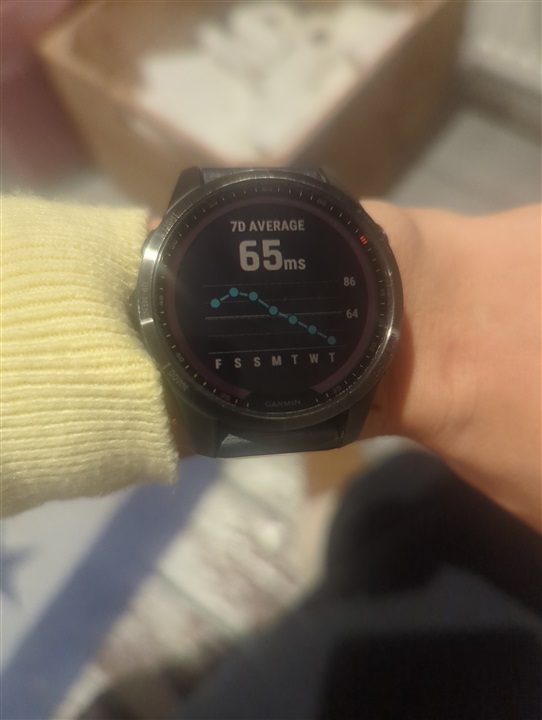Hi there,
I'm fairly active, run 2/3 times a week and cycle the same. 40 year old woman, VO2 max is 51.
About 6 weeks ago I got a chest infection which turned into pneumonia. I was in bed for a couple of weeks and pretty unwell. My watch ran out of battery and I took of off. Around a week ago after finally starting to feel better I put it back on have done a few light runs. My training status is showing as strained but my HRV is decreasing steadily every day. It says baseline is 86-135ms but 7 day average is now 65 and last nights average was 46ms. Should I be concerned? Just not sure how accurate this reading is. Graph is showing steep downward turn this week...


